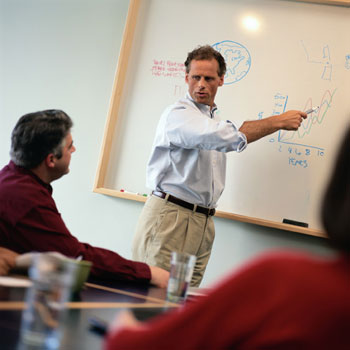Growing A Couple's Loving Relationship
Article 1. Happily Ever After
By Reuben E. Gross M.A., M.S., PhD, ABP, ABBP, FAACP, LMFT
For a free 15 minute consultation call me at:
Office Phone: (201) 836-2737
Cell Phone: (201) 218-3112
Office Address: 1299 Wellington Avenue, Teaneck, NJ 07666
 |
Once upon a time when one heard the phrase; “They got married and . . . ” an internal cue would prompt the words, “they lived happily ever after.” But those associations took place when we were younger and the memory of Cinderella and other fairy tales still lurked in our minds. Nowadays, many of us are more knowledgeable about the complications of marriage and our thought might be a more sophisticated “their problems first began.”
|
First-Time Marriages
With first-time marriages, the problems might be power struggles over who makes the decisions, how much time partners spend with (or without each other), different needs for: a. closeness and companionship, b. free expression of feelings towards each other, c. expression of emotional needs from each other, d. sharing information about each person's day, e. expression and fulfillment of emotional needs, and f. whether or not they make their spouse their number one priority.
Other areas of conflict might include money, respect, roles, and responsibilities to each other, affection, sex, or in-laws. All this, in addition to the frustration that comes with the inevitable, greater or lesser, the disillusionment that follows most romantically based marriages. In worst-case scenarios, there is a woeful incompetence in communication so that mutual self-revelation and exploration of one's partner is lacking and good problem-solving strategies are rarely used. Instead, in too many cases marriage counselors report arguments that turn into fights with anger, blaming, name-calling, hurt, disappointment and withdrawal, with the result that the original good situation goes from good to bad, and from bad to worse.
Judith Viorst writes in Grown-up Marriage as follows: "IT'S SO HARD TO BE MARRIED. It's so much damn work. There's so much: Choose one or more or all of the following—pain, rage, disillusionment, betrayal, bitterness, sacrifice, loneliness, boredom, contempt, despair, disconnection. This isn't the person I married, or this isn't the person I want to be married to now, or I can't be who I want to be in this relationship. Could I leave you? Should I leave you?"
How do we decide how much blood and sweat and tears we owe to our marriage?" Mira Kirschenbaum addresses this problem in her book "Too Good to Leave; Too Bad to Stay." She calls her book "a step by step guide to help you decide whether to stay in or get out of your relationship."
Are Second Marriages Better?
With second marriages, the phrase "They got married and..." might be followed by such realistic epilogues as (here too, in a worst-case scenario): her alimony stopped, her children resented that she had to go to work, they had to move to a new neighborhood, change schools, lose contact with their friends, etc. Further, her children resented having to share their mother with her new husband, didn't like him very much, nor did he seem to like them, nor did they get along with his children from his first marriage. Sometimes, previously married spouses fight over loyalties to their own biological children, from their first marriage, vs. their loyalty to their spouse's children from his/her first marriage. They may also fight over time commitments with their original families, or ties with their respective "ex," or their ex-in-laws, especially at holiday times. With older or more established couples, disputes may arise over prenuptial agreements, how each spouse's will is to be written, inheritance of property and other financial matters.
The Sad Epilogue Might Be:
They were happy for a while because they were very much in love, but they discovered that they couldn't live with each other for a variety of reasons, not limited to those cited above. They came to the sad conclusion that they simply could not juggle all the demands made on them from so many different sources and that getting married was a mistake. Nor did each person turn out to be what the other person thought he/she was getting in the first place.
Sadly, the divorce rate for second marriages is higher than that for first marriages. But with effort, commitment, devotion, and proper help, many couples can beat this statistic.
Since people who enter into second marriages are more experienced, both partners may think that they are sophisticated enough to know what they are looking for in a spouse. With the painful experience of their first marriage behind them, and the lessons they have learned about people, they believe that they now know enough about the opposite sex so that they can rely on their judgment and their observations of their prospective spouse so that "what they see is what they (will) get." Sadly, they sometimes discover traits or situations that they never anticipated. But this need not lead to resignation or despair.
Unexpected problems constitute a challenge, but this is not a defeat; with professional help, under most circumstances, this challenge can be met successfully!
For more information on this subject, please click here for my article on "The Hidden Agenda in Relationships."

Marriage is a 50-50 Proposition. (50% make it; 50% don't).
According to the National Center for Health Statistics, the U.S. divorce rate has hovered at the 50% level since 1980. But if getting married can be a mistake for some people, a far more serious mistake is society's failure to prepare prospective mates for marriage. Essentially we build up the institution of marriage, glorify and romanticize it, make a great big hoopla while planning and enjoying the celebration, all the while spending a small fortune on a 4 to 5-hour event. We then wish the couple "good luck" while sending them off on a virtual sink-or-swim mission. At Jewish weddings, many people say, “mazal tov,” without realizing that the literal translation of these words is: “may you have good astrological signs.” But perhaps this is the most appropriate blessing to bestow upon the happy, but unwitting, couples because at the rate that marriages go today, their chances of success are barely better (approximately 50%) than their chances at the casinos in Atlantic City. But there is one difference: the casino gamblers understand the odds, the newlyweds do not. And, unfortunately, due to the lack of an even rudimentary course on "The Proper Care, Training and Treatment of a Spouse," luck (the astrological signs) will play too much of a part in their marital success.
But the biggest mistake most couples can make is to become discouraged and give up just because their marriage has hit a wall…is going nowhere…or is going downhill. Spiraling downward marriages can be saved, can be turned around, and ultimately can be very happy.
The Need For Formal Instruction in Human Relationships
 |
Why do we assume that just because a couple has reached a certain age, they are capable of a successful marriage? Indeed, no one would question a couple's right to marriage and parenthood. And yet, a wise observer might legitimately ask: “What training, instruction or competencies do the newlyweds have in either of these great and complicated enterprises?” Many people would respond “Individuals learn all about marriage in their homes." Unfortunately, this argument often boils down to a case of the blind leading the blind. And even in the best of cases, i.e., with a very happily married couple, is it realistic for parents to invite their children into the inner chambers of the marriage to demonstrate its complexities, problems, and solutions. Where does this leave the next generation?
|
Courses, Courses Everywhere, But Not Any in Human Relations
Our schools require training and proficiency in algebra, ancient history, and foreign languages. However, they give scant attention to the most important and complicated of life's challenges: being a good spouse. Some would say that such a subject cannot be taught in a formal fashion. Not so. Being a good spouse is composed of numerous individual skills that can be isolated, highlighted, and taught at all age levels. These skills can then be practiced on members of one's family, friends, and classmates--the very people the person would practice on with what the child supposedly learns in the informal “at home” classroom. The curriculum to prepare individuals for marriage should focus on the development of such basic interpersonal skills as respect for self and others, compassion, selflessness, respect for the truth, the ability to empathize, express emotions, bond, communicate effectively, and resolve differences.
Many studies show that the single most important factor that contributes to the permanency of a relationship is the ability of the couple to argue constructively and resolve their differences in a friendly fashion. This important skill and the competencies mentioned above form the infrastructure for all human relationships, and are critical for compatible living in one of the most complex of all human relationships: marriage.
There was a time when the total education of the young took place at home. Eventually, it was recognized that very few parents had the requisite skills and knowledge that society wished to pass on to the next generation, and even if they did, they made poor teachers. We took a step in the right direction by instituting a compulsory system of public education and continually enriched the curriculum to the point where we now include such up-to-date courses as driver and computer education. Why not enrich the curriculum even further by adding such sophisticated courses as “Preparation For Marriage” for singles or premarital couples, and Adult-Ed courses in “Marriage Enhancement” for married couples?
Our schools require training and proficiency in algebra, ancient history, and foreign languages. However, they give scant attention to the most important and complicated of life's challenges: being a good spouse. Some would say that such a subject cannot be taught in a formal fashion. Not so. Being a good spouse is composed of numerous individual skills that can be isolated, highlighted, and taught at all age levels. These skills can then be practiced on members of one's family, friends, and classmates--the very people the person would practice on with what the child supposedly learns in the informal “at home” classroom. The curriculum to prepare individuals for marriage should focus on the development of such basic interpersonal skills as respect for self and others, compassion, selflessness, respect for the truth, the ability to empathize, express emotions, bond, communicate effectively, and resolve differences.
Overcoming Negative Stereotypes
Sadly, many people consider any course in human emotions or relationships “sissy” or stigmatic. Well, if negative stereotypes such as prudery in sexuality have changed, so can attitudes about education in human relationships. However, as a concession to those people who would feel more comfortable about such courses if they were required, and we do require courses in physical health, why not establish a required progression of courses in mental health and interpersonal relationships beginning with elementary school? If we recognize the dangers of inept driving, why not the dangers of emotional immaturity and unprepared marital partners? For those who still say that such courses are unnecessary, I reply: look at the devastation around you. The “normative” child in this country no longer comes from a two-parent household. The stability and strength that our children once derived from the old-fashioned “nuclear family” is a fading phenomenon.
What Form Will This Education Take?
Understandably, for the education and training recommended here, there is a need for an experiential and interactive type of presentation rather than the lecture, note-taking format we so frequently experience in school. No problem. Many program formats for the type of workshop and education suggested here can be formulated from the abundance of experience in curriculum development that evolved from the numerous workshops and seminars offered by various humanistic schools and marriage encounter groups all over the country for the past few decades.
How long will society continue to ignore an epidemic that destroys fifty percent of American marriages? Shall we continue to shrug our shoulders and ignore this problem, or shall we do something about it? Blackjack players who wish to beat the odds can always sign up for a course in card-memorization. What can the newlyweds do? And what about the "old marrieds?"
How Should You be Feeling Now?
For one thing, don't feel embarrassed about recognizing or admitting that you need help from a marriage counselor. This is a very healthy first step for you. Denial and delay will only make the problem worse and harder to solve when you finally do face up to it. Secondly, don't feel guilty. In most situations, you and your spouse got very little or no training for your marriage or committed relationship. How is either of you supposed to be a competent partner?
A favorite metaphor that I give to my couples involves a summer camp swimming counselor who didn't give a single lesson to any of his campers, but nevertheless, lined them all up at the side of a deep gigantic pool, and called out: "OK, if you want to swim, jump in!"
Catastrophe? What else can you expect? And yet, this is exactly what society says to committed couples: "If you want to get married, jump in!"
I sometimes make the same point by asking my clients: Would you trust your life to a pilot who never flew a plane before, never had any formal training in flying, and learned all about flying and weather conditions from his friends, some of whom are not around anymore since they crashed their planes? Well, why do you trust your marital happiness to someone with the same lack of training for marriage? Is being in love enough?
For more information on this subject, please read the article following this one entitled "Love Conquers All?"
What Can You Do To Help Yourself?
To help yourself at this point, you can attend lectures and workshops with your spouse, read self-help articles and books, and discuss all of these learning experiences with each other. The self-help measures are all valuable, but especially so at the beginning of your relationship and are even more valuable before your problems take on a heavy dimension. Two of my favorite books for couples are written by the following psychologists who are in the vanguard of research on marriage: We Can Work it Out by Clifford Notarius, Ph.D. & Howard Markman, Ph.D., and Fighting For Your Marriage by Howard Markman, Ph.D., Scott Stanley, Ph.D., and Susan L. Blumberg, Ph.D. Self-help measures are best used for: a) marital preparation to forestall future problems, and b) marital enhancement to improve your ongoing relationship. However, they can also be used to work out problems that have not become too serious.
Your spouse married you hoping to increase his/her happiness, not his/her misery. Therefore, before you act or make any statement, especially in a sensitive area, you should ask yourself the question: "Will this act or statement increase my partner's happiness or misery? Will it make things better or worse?"
Interpersonal problems are complex and there is no one-solution-fits-all "ultimate wisdom" to the varied situations that couples experience. If the problem has reached a point where professional help is needed, the sooner you begin, the better. Most problems are solvable.
With goodwill, commitment to change, and energetic involvement by both parties, you and your spouse can learn to overcome your problems and lead a life of harmony and peacefulness. Aside from the normal periodic problems that assail every couple, why shouldn't the two of you be able to fulfill your dream of living together Happily Ever After?
End of Article I. "Happily Ever After"
For more articles on "Growing a Couple's Loving Relationship" please click here.
Back to Top

Inquiries Welcome
I see couples in person as well as online
For a free 15 minute consultation call me at: